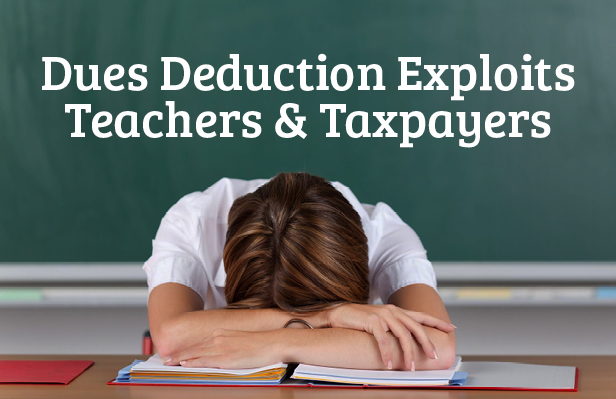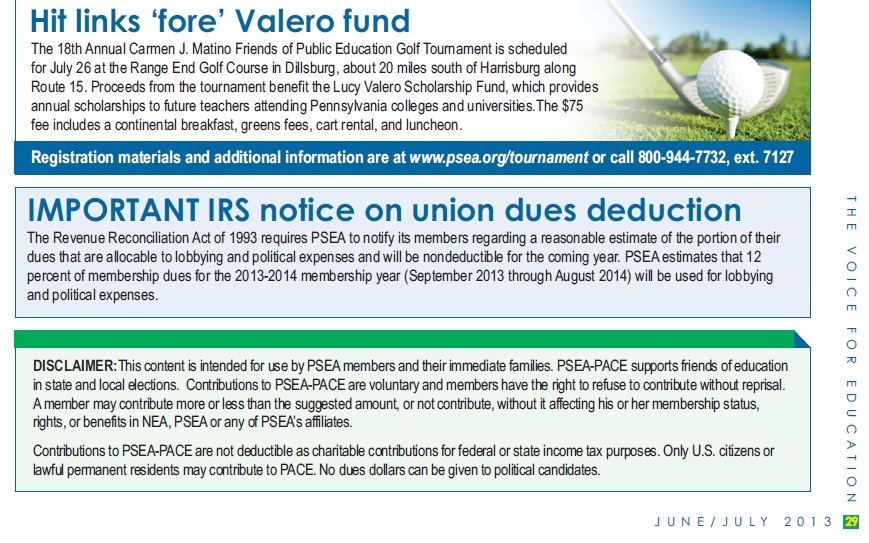Media

Union Quietly Admits to Using Dues for Politics
Whenever we talk about how teacher and other government unions spend their members’ dues on politics, the most common reaction we hear is that simply isn’t true. Workers often hear that rebuttal from their union leaders.
So it’s interesting to find that the Pennsylvania State Education Association, the state’s largest government union with 180,000 members, issues an annual legal notice in its official Voice magazine saying just that. Below is the notice from their June 2013 issue, buried at the back and sandwiched between two other nondescript ads.

I asked a few teachers involved with Free to Teach— all former union members—if they’d ever noticed this notice in the Voice before. All said no—and none thought the bare-bones banner ad was an appropriate way to inform teachers about how their money is being used.
“I certainly don’t think that is enough or proper notification considering it is our money they are using,” said Julie Raab, an elementary school librarian in Dauphin County. “A properly addressed letter should be sent to each member stating how much is being spent and specifically on what causes. This would allow members to voice their opinions as to whether they agree with the cause or hold to a differing view.”
John Cress, a middle school math and special education teacher in Lawrence County, agrees. “My idea for disclosure is each year a teacher gets a postcard. On one side is a breakdown of the disclosure report and on the other are two boxes, () Yes, I understand my dues will go here and want to remain member [and] () No, I wish to go fair share and understand that these funds will now be added back into my paycheck.”
In fact, according to the PSEA’s reckoning, the portion of union dues going to political activities such as election mailers and lobbying of legislators is estimated to double from 6 percent in 2009 to 12 percent by the end of the 2013-14 school year.
Steve Calabro, a cyber charter school educator, stumbled on the political spending number by a Google search—long after he’d left the union. “How much money is the government owed from teachers who don’t take this into account when filing taxes?” he said. “This information should be a separate mailer that goes out the first week of January, not smothered in the back of a summer issue of a magazine that no one reads.”
But then, burying any mention of how union dues are used for politics may be intentional, according to Raab. “It has been my experience that union leadership does not want to hear any voices of dissent or different viewpoints.”
The PSEA and other unions’ slapdash treatment of such an important issue is just one more reason we need paycheck protection, a reform that would create more transparency and accountability between union leaders and union members.